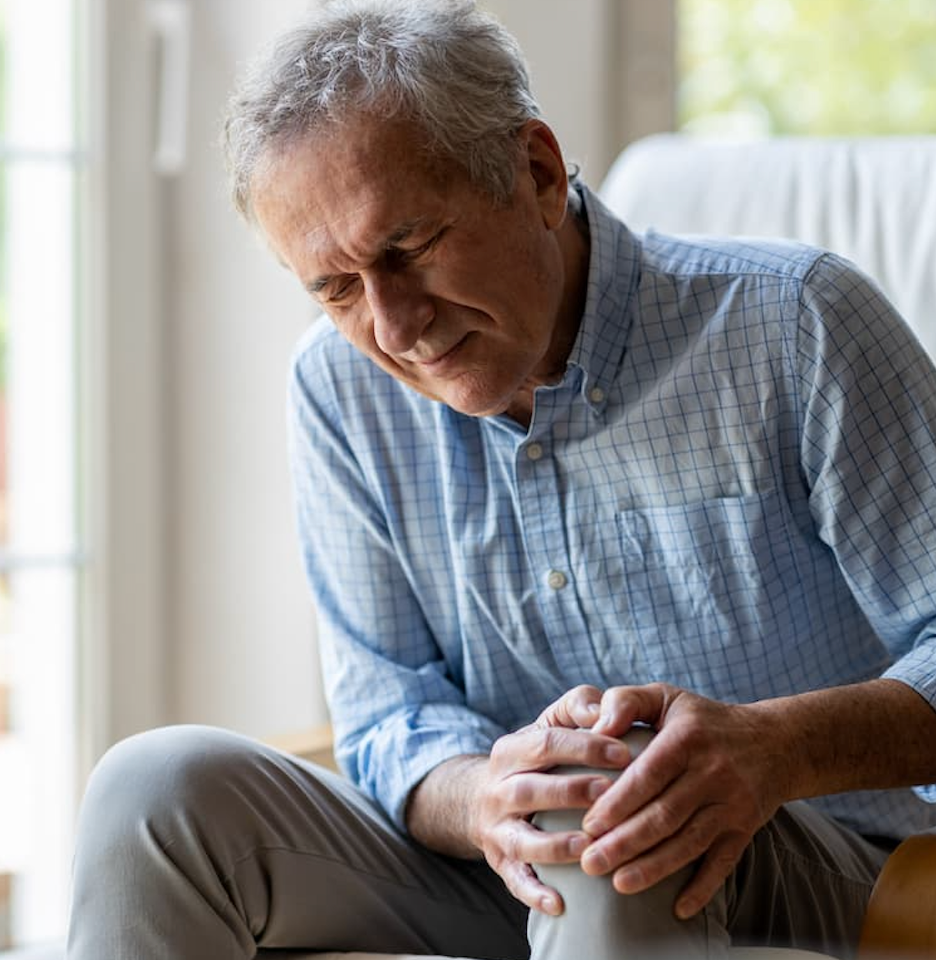Video
Initial Treatment Options in Osteoarthritis of the Knee
Peter L. Salgo, MD: Is it the expectation, in 21st-century America, that I should be absolutely, positively 100% pain-free?
Paul Lachiewicz, MD: Absolutely, Peter. I just want to mention this to our primary care physicians—there’s so much more that you can do, other than opioid medication.
Peter L. Salgo, MD: I was going to go there.
Paul Lachiewicz, MD: It’s always been said that arthritic pain gets better with rest. However, in this day and age, rest is not going to bed. It should be interpreted as activity modification. So, for example, if you only have pain when you’re running 5 miles, I ask the patient, “Would you consider using an exercise bicycle? Would you consider swimming?” If your knee only hurts when you’re skiing moguls, I’ve told some professionals, “You know, I think it’s time to go down to greens and blues.” If you can do that, that’s fine. That’s the activity. But, I think it’s important to do something. I try to emphasize that you want to do the right kind of activity or the right kind of exercise.
Peter L. Salgo, MD: So, let’s call this activity modulation?
Paul Lachiewicz, MD: Correct. That would be a great thing.
Peter L. Salgo, MD: It’s like the old joke, where the guy goes to the doctor. He says, “Doctor, it hurts when I do that.” The doctor replies, “Stop doing that. Do something else.”
Paul Lachiewicz, MD: Yes. Right.
Richard Iorio, MD: This is a lifestyle disease, right? That’s where it affects most people on the fringes. At that point, it’s elective, and it’s advice. When it starts to affect day-to-day activities, like going to your job, or sleeping at night, that’s when it gets more serious.
Peter L. Salgo, MD: So, it’s not just “Don’t ski moguls?” You can’t say, “Stop sleeping.”
Richard Iorio, MD: Right. When it affects their daily life to the point that they can’t make a living, they can’t take care of their family or they can’t sleep at night, then it rises to the level of needing some sort of intervention.
Andrew Spitzer, MD: I would add that as the face of arthritis gets younger, we’re seeing more and more of those kinds of complaints. In a 75-year-old, we are more likely to be able to say, “Maybe you should live with this. Maybe you should modulate your activities.” But, if it means saying to somebody, “Gosh, you can’t do basic requirements of your job on a day-to-day basis,” that’s a significant problem where we really need to intervene.
Peter L. Salgo, MD: Where do the anti-inflammatories come in?
Paul Lachiewicz, MD: For our primary care physicians, I would recommend that they use over-the-counter medications first—acetaminophen, ibuprofen, and things like that. I’ve actually noticed that patients don’t want to take medications anymore. There’s too much in the lay press: “This medicine causes liver problems.” “This medicine causes high blood pressure.” “This medicine can give you a stroke.” I’ve noticed a sea change. Patients are not interested in medication. So, perhaps there is a role?
I generally tell these weekend warriors, “If some of these over-the-counter tablets help you, if you’ve got to go out and play 18 holes of golf, or you’ve got to run this charity 5K, take a couple of these pills that morning, take some afterwards, and put ice on your knee.” But, most patients don’t want to take this on a regular basis. You know what? They probably shouldn’t.
Peter L. Salgo, MD: A friend of mine runs a restaurant. He’s behind the counter a lot, and he’s got osteoarthritis. I asked him, “How do you manage this?” I asked him because I knew I was coming here, today. He said, “I take a Tylenol in the morning, and I get through the day. It doesn’t cure my disease, but it means that I’m OK.” Is that rational?
Paul Lachiewicz, MD: Of course. I think so.
Richard Iorio, MD: I have bilateral osteoarthritis of the knees. I take 2 Tylenol and 1 Naprosyn every morning. That’s how I get through the day. The interesting thing is, patients are reluctant to take medication, as Paul says, because there’s a lot of information about prescription and over-the-counter medications that the FDA has approved. Yet, they’ll go to the GNC store and buy every over-the-counter supplement they can, where there is no literature basis, in fact. There is no characterization of their side effect profiles. They’ll take double the strength, because they think that’s going to be better. I would recommend that they stick with something that their doctor recommends.
Andrew Spitzer, MD: One of the things that we can do for patients is really empower them with some self-management options. We can give them permission to use that Aleve or ibuprofen in a manner that is rational and effective for them. We can empower them to have a toolbox of options—whether it’s a brace, whether it’s exercises to maintain strength of the quadriceps and balance of the hamstrings, and all of those kinds of factors. For me, when I see patients, I live with their osteoarthritis for 15 minutes once every 3 months. They live with it 24-7. So, giving them those tools to help them on a day-to-day basis is where we can be most useful.
Transcript edited for clarity.





